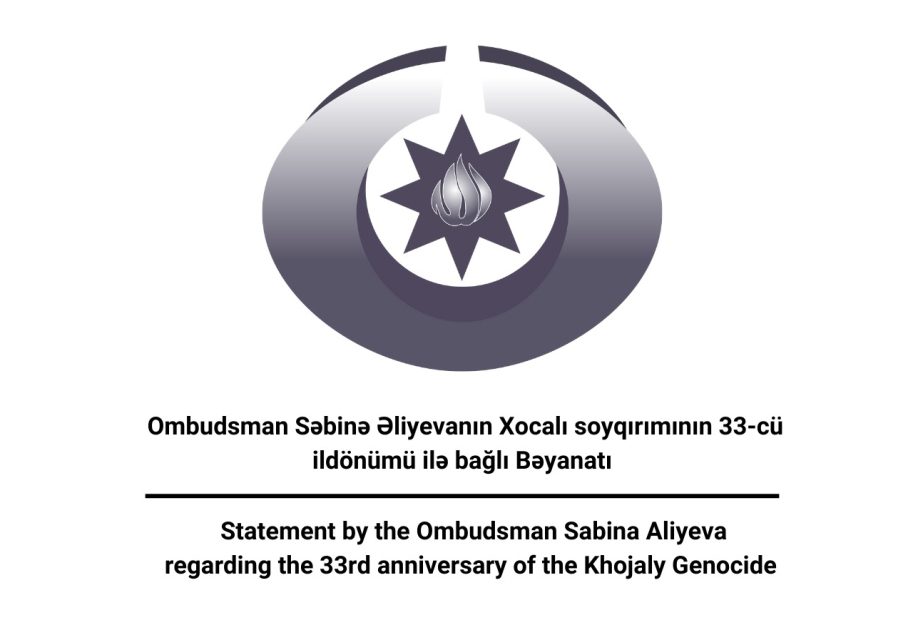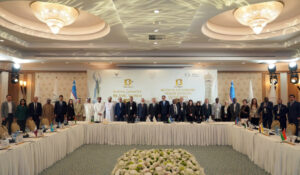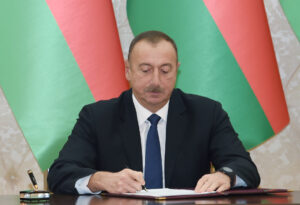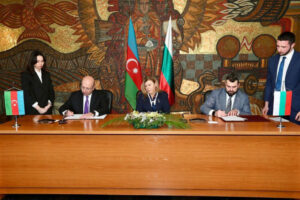Azerbaijani Ombudsman Calls for International Recognition of Khojaly Genocide on Its 33rd Anniversary

Baku, The Gulf Observer: Azerbaijani Commissioner for Human Rights (Ombudsman) Sabina Aliyeva has issued a statement on the 33rd anniversary of the Khojaly genocide, urging the global community to acknowledge the massacre and take decisive action against those responsible.
Aliyeva highlighted that the Khojaly genocide, committed by Armenian armed forces with the support of the 366th Motorized Regiment of the former Soviet Army on the night of February 25-26, 1992, stands as one of the darkest chapters in modern history. She underscored that 613 civilians, including 63 children, 106 women, and 70 elderly individuals, were brutally murdered, while 5,379 residents were forcibly displaced. The fate of 150 people, including 68 women and 26 children, remains unknown.
The Ombudsman emphasized that the Khojaly genocide constituted a severe violation of international legal frameworks, including the 1949 Geneva Conventions, the Genocide Convention, and various human rights treaties. She reaffirmed that these atrocities represented crimes against not only Azerbaijanis but humanity as a whole.
Aliyeva recalled that the Azerbaijani Parliament, at the initiative of National Leader Heydar Aliyev, officially recognized the Khojaly genocide, designating February 26 as the Day of Khojaly Genocide. She commended the international “Justice for Khojaly” campaign led by the Heydar Aliyev Foundation, which has successfully raised awareness and secured recognition of the tragedy by 18 countries, 24 U.S. states, the Organization of Islamic Cooperation (OIC), and the Organization of Turkic States.
Recent forensic excavations in liberated territories, including mass graves discovered near the Asgaran fortress in the Khojaly district, provide further evidence of the systematic killings perpetrated during the occupation. Aliyeva reiterated Azerbaijan’s demand for Armenia to disclose the whereabouts of nearly 4,000 Azerbaijanis who went missing during the First Karabakh War.
Citing statements from former Armenian President Serzh Sargsyan and references in books such as My Brother’s Road by Markar Melkonian and The Revival of Our Soul by Zori Balayan, Aliyeva asserted that the Khojaly genocide was a deliberate act of ethnic hatred. She also noted confessions from Armenian individuals accused of war crimes, further substantiating the scale of atrocities committed against Azerbaijani civilians.
Calling for decisive international action, Aliyeva urged global organizations and states to formally recognize the Khojaly genocide and ensure accountability for those responsible. The statement has been sent to the UN Secretary-General, UN Security Council, UN human rights bodies, the European Union, the Council of Europe, the OSCE, the OIC, and other international institutions, as well as diplomatic missions and Azerbaijani diaspora organizations worldwide.


